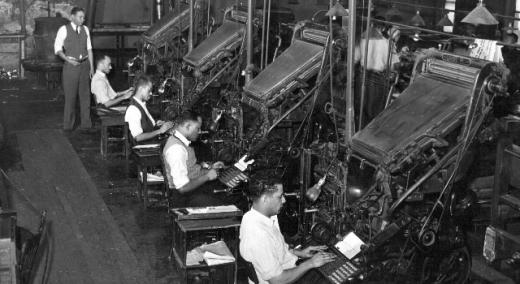Linotype operators banging out newspaper stories at the Chicago Defender in 1941.
As a late Boomer, I can say my particular age group is better positioned than any to marvel at and bemoan what’s become of journalism and publishing in the last 40 years.
Not that I’m a Luddite. The advent of word processors was a boon to ham-fisted typists like me. A word processor that actually stored files? Outstanding! And then, not too much later, it was amazing to see computers that allowed editors to search lists and view layouts.
|
ADVERTISEMENT |
Fine, just go ahead and say it now: “OK, Boomer.” I don’t care—no one can disagree that even the world’s greatest publications have more typographical and factual errors than ever. Even well-respected, mainstream publications run articles that end with a disclaimer, something like, “If you spot an error, let us know...” which I would rate right alongside, “Your call is important to us.”
The reason for the higher rate of error is, or should be, obviously simple: Publishers spend less time (read: money) on editorial quality assurance.
…

Comments
BRAVO
A priest, a minister, and a rabbit go into a bar.
Bartender asks the rabbit, "What are you doing with them?"
Rabbit says, "Spell check!"
Right on.
When I graduated with a degree in communications and publication design the publication process was very much as you describe. I then got a job working for a company developing newspaper publishing software. I watched the progression from multiple proof reads to lettng the compuer do the spell checking. After 30+ years in the sofware industry and ending my carreer in quality assurance I sill look for the publication errors. It is why I always read the corrections section of the Wall Street Journal first.
Add new comment